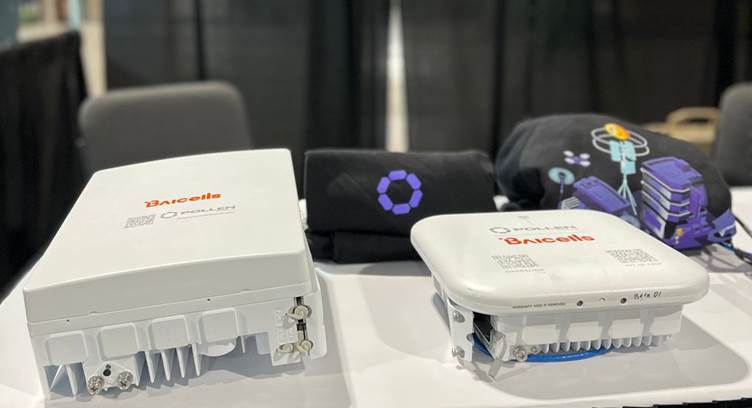Baicells Technologies, a leading global provider of LTE and 5G NR network solutions, announced it is working with Pollen Mobile to help roll out decentralized wireless networks, to bring LTE and 5G connectivity to households and communities across the US.
Pollen’s decentralized mobile network leverages blockchain technology and is owned and operated by its user community, with a strong focus on user privacy. Anyone can participate in the build-out of this next-generation, peer-to-peer wireless network. Individuals, small business owners, and others can order Baicells small cell systems, known as ‘Flowers’, directly from Pollen via their online store. These new ‘Flowers’ connect to the existing Pollen network helping to extend its coverage and add capacity, which can be accessed and used to transfer data anonymously via a simple eSIM. In return for providing network coverage and for sending data, Pollen compensates its users with PollenCoin, a Solana-based cryptocurrency.
Major drivers that make this model a reality are advances in small cell platforms and the recent opening of the CBRS (Citizens Broadband Radio Service) spectrum. Small cell costs continue to drop, with the systems becoming increasingly simple to deploy. Using CBRS affords clear benefits vs. alternatives, including enhanced device security, highly predictable quality of service, mobility, and 5G compatibility.
Baicells is helping Pollen Mobile make decentralized networks a reality that can help to close the digital divide in the US. Pollen enables anyone – from individuals to small businesses to entire towns –to participate in growing the Pollen network and earning compensation for providing coverage or network validation. The approach looks to help address the 22.5% of US households without home internet access by providing high-speed, secure, and affordable wireless connectivity with a network built, owned, and operated by the Pollen community.
Rollout of the Pollen Mobile network is already underway, gaining traction with both residential and enterprise customers across a range of locations from rural areas to densely populated urban environments. And because the technology is based on standard cellular and LTE, there is a massive ecosystem behind it. The scalability, flexibility, and performance means it is well suited to a broad range of use cases outside of typical smartphone coverage, for example as a solution for autonomous vehicles or Industrial 4.0 IoT initiatives. Pollen’s parent company, Pronto, has already started trialling driverless trucks using this same network technology in remote sites that lack coverage from traditional mobile carriers.
Alternatively, the network can also be used to offload cellular data for traditional wireless carriers, attracting the interest of national service providerswho could consider this network as a kind of potential roaming partner.
Minchul Ho, General Manager for Baicells North America at Baicells
We’re delighted to be working with Pollen Mobile to address the digital divide and create a network with security and privacy as a central feature. Geography and population density are both significant barriers to universal connectivity, and we are excited to be delivering a network that not only has the potential to change this, but to do so with speed.




















